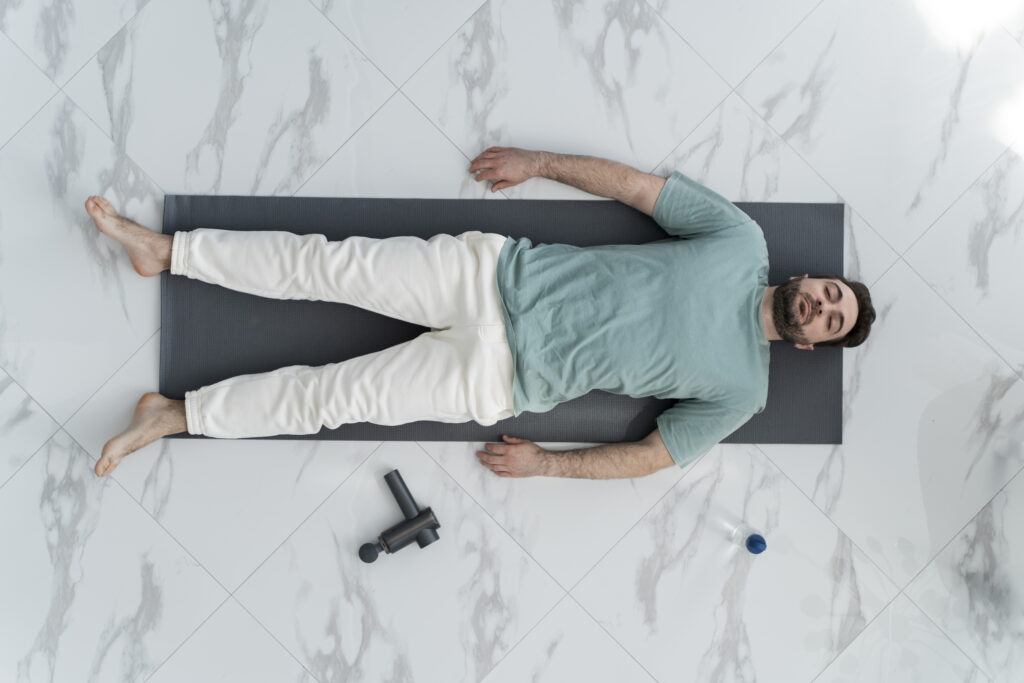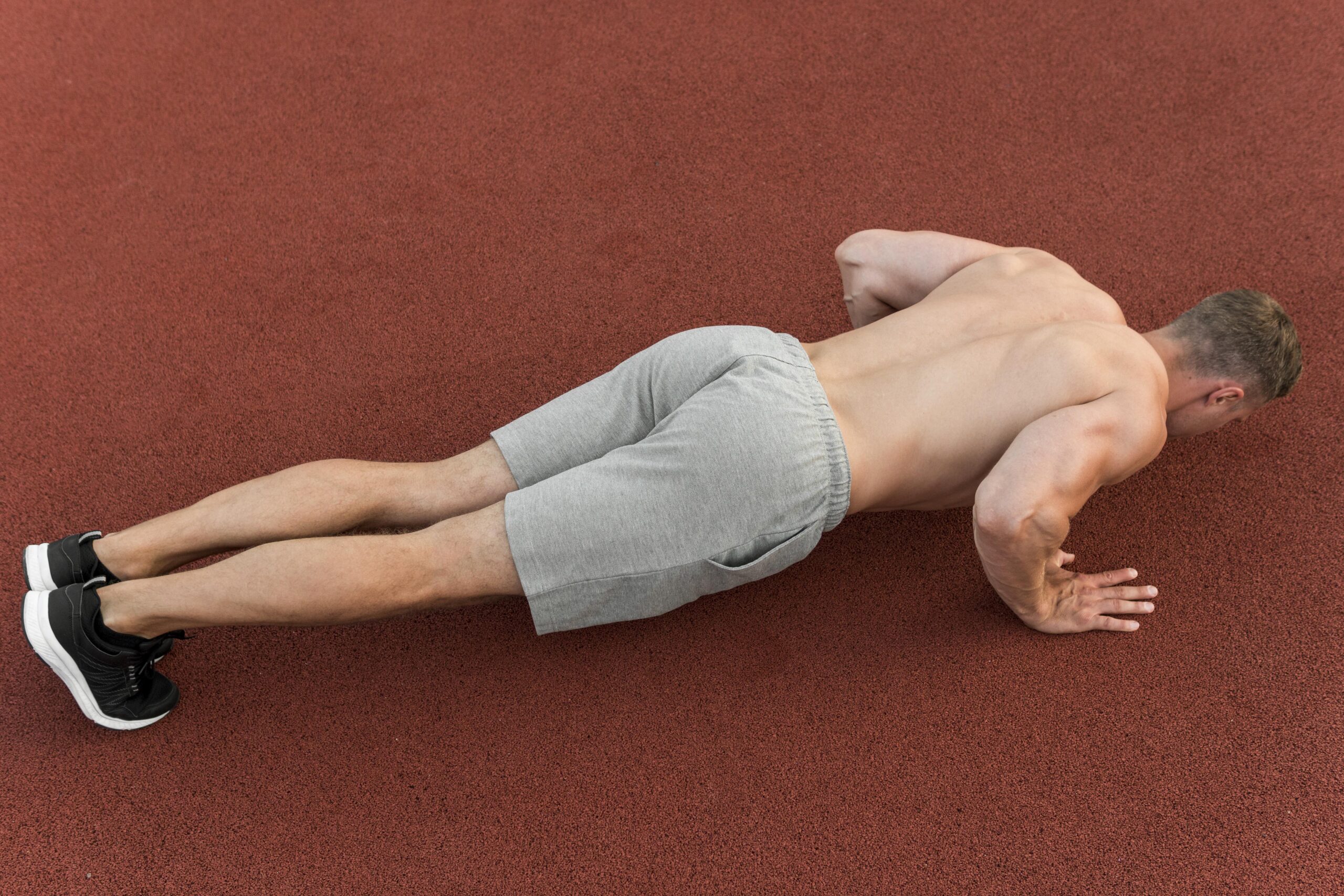The best sleeping position for muscle growth and recovery isn’t as specific as some might think, but there are a few principles to consider to optimize rest and muscle repair.

General Recommendations for Sleep and Muscle Growth
1. Get Enough Sleep: Aim for 7-9 hours of sleep per night, as this is crucial for muscle recovery and growth.
2. Quality of Sleep: Ensure you have a consistent sleep schedule and a comfortable sleep environment.
Specific Sleeping Positions
1. On Your Back (Supine Position).
- Pros: This position keeps your spine aligned and reduces pressure on your joints, which can help prevent aches and pains. It’s also good for preventing wrinkles and acid reflux.
- Cons: Some people might snore more in this position, and it might not be comfortable for those with lower back pain without proper support.
2. On Your Side (Lateral Position).
- Pros: Sleeping on your side can reduce snoring and is generally good for spinal alignment if you use a supportive pillow. It can also be beneficial for digestion and preventing acid reflux.
- Cons: It might cause shoulder and hip discomfort due to pressure points, especially if the mattress is too firm or too soft.
3. Fetal Position.
- Pros: This position can be comfortable and reduce snoring. It also aligns the spine and can be beneficial for people with sleep apnea.
- Cons: Curling up too tightly can restrict diaphragmatic breathing and potentially cause joint discomfort over time.

You Can Also Like To Read This:- How To Sleep After A BodyBuilding (BB)
Tips for Bodybuilders
- Supportive Mattress and Pillows: Use a mattress that provides the right amount of support for your body weight and sleeping position. Pillows should support your neck and head adequately to maintain spinal alignment.
- Leg Support: If sleeping on your back, placing a pillow under your knees can reduce lower back strain. If sleeping on your side, placing a pillow between your knees can keep your hips aligned.
- Shoulder Support: Bodybuilders often have broader shoulders, so a thicker pillow may be needed to fill the gap between the neck and the mattress when sleeping on the side.
Additional Tips
- Avoid Stimulants Before Bed: Limit caffeine and other stimulants in the hours leading up to bedtime.
- Establish a Routine: A consistent sleep routine helps regulate your body’s internal clock.
- Create a Sleep-Friendly Environment: Ensure your sleeping environment is cool, dark, and quiet.
Some additional tips and insights to further enhance your sleep quality and optimize muscle growth and recovery.

You Can Also Like To Read This:- How To Get My Wife To Sleep With Another Man
Detailed Sleep Hygiene Practices
- Consistent Sleep Schedule.
- Go to bed and wake up simultaneously every day, even on weekends. This consistency helps regulate your circadian rhythm.
2. Wind-Down Routine.
- Develop a relaxing pre-sleep routine. This could include activities like reading, taking a warm bath, or practicing gentle stretching or meditation.
3. Limit Screen Time.
- Avoid electronic devices at least an hour before bed. The blue light emitted from screens can interfere with melatonin production and disrupt your sleep cycle.
4. Manage Stress:
- Stress management techniques such as deep breathing exercises, progressive muscle relaxation, or journaling can help calm your mind before bed.

Nutrition and Supplements
1. Pre-Sleep Nutrition:
- Avoid heavy meals and caffeine close to bedtime. Opt for a light snack if you’re hungry, such as a small serving of protein and healthy fats.
2. Hydration:
- Stay hydrated throughout the day, but try to limit fluid intake in the hour or two before bed to minimize nighttime awakenings for bathroom trips.
3. Supplements:
- Some supplements, like magnesium, melatonin, or certain amino acids (like tryptophan), may help promote relaxation and improve sleep quality. Consult with a healthcare provider before starting any new supplement.
Sleep Environment Optimization
- Comfortable Bedding:
- Invest in a quality mattress and pillows that provide the right balance of comfort and support. Replace them when they show signs of wear.
2. Room Temperature:
- Keep your bedroom cool, ideally between 60-67°F (15-19°C), which is conducive to better sleep.
3. Darkness and Quiet:
- Use blackout curtains to block out light and consider using earplugs or a white noise machine to minimize disturbances.
4. Aromatherapy:
- Certain scents, like lavender, can promote relaxation and improve sleep quality. Consider using an essential oil diffuser in your bedroom.

Exercise and Activity
1. Regular Physical Activity.
- Engage in regular exercise, but try to finish intense workouts at least a few hours before bedtime to allow your body to wind down.
2. Stretching and Mobility.
- Incorporate gentle stretching or yoga before bed to relieve muscle tension and promote relaxation.
Advanced Techniques
- Sleep Tracking.
- Use a sleep tracker or app to monitor your sleep patterns and identify areas for improvement. This data can help you make informed adjustments to your sleep routine.
2. Mindfulness and Meditation.
- Practices like mindfulness meditation can improve sleep quality by reducing stress and promoting a sense of calm before bed.
3. Professional Help.
- If you experience persistent sleep issues, consider consulting a sleep specialist or healthcare provider to rule out conditions like sleep apnea or insomnia.
Specific Considerations for Bodybuilders
- Post-Workout Recovery.
- Incorporate proper cool-down and stretching routines after workouts to reduce muscle soreness and improve sleep quality.
2. Nighttime Protein Intake.
- Consider a slow-digesting protein source, like casein, before bed to support muscle repair and growth throughout the night.
3. Avoid Alcohol.
- Alcohol can disrupt sleep patterns and interfere with the body’s natural recovery processes, so it’s best to avoid it close to bedtime.
By paying attention to these details and making adjustments as needed, you can create an optimal sleep environment and routine that supports your muscle growth and overall health.
Ultimately, the best sleeping position is one that allows you to sleep comfortably through the night without waking up in pain. Listen to your body and make adjustments to find what works best for you.

